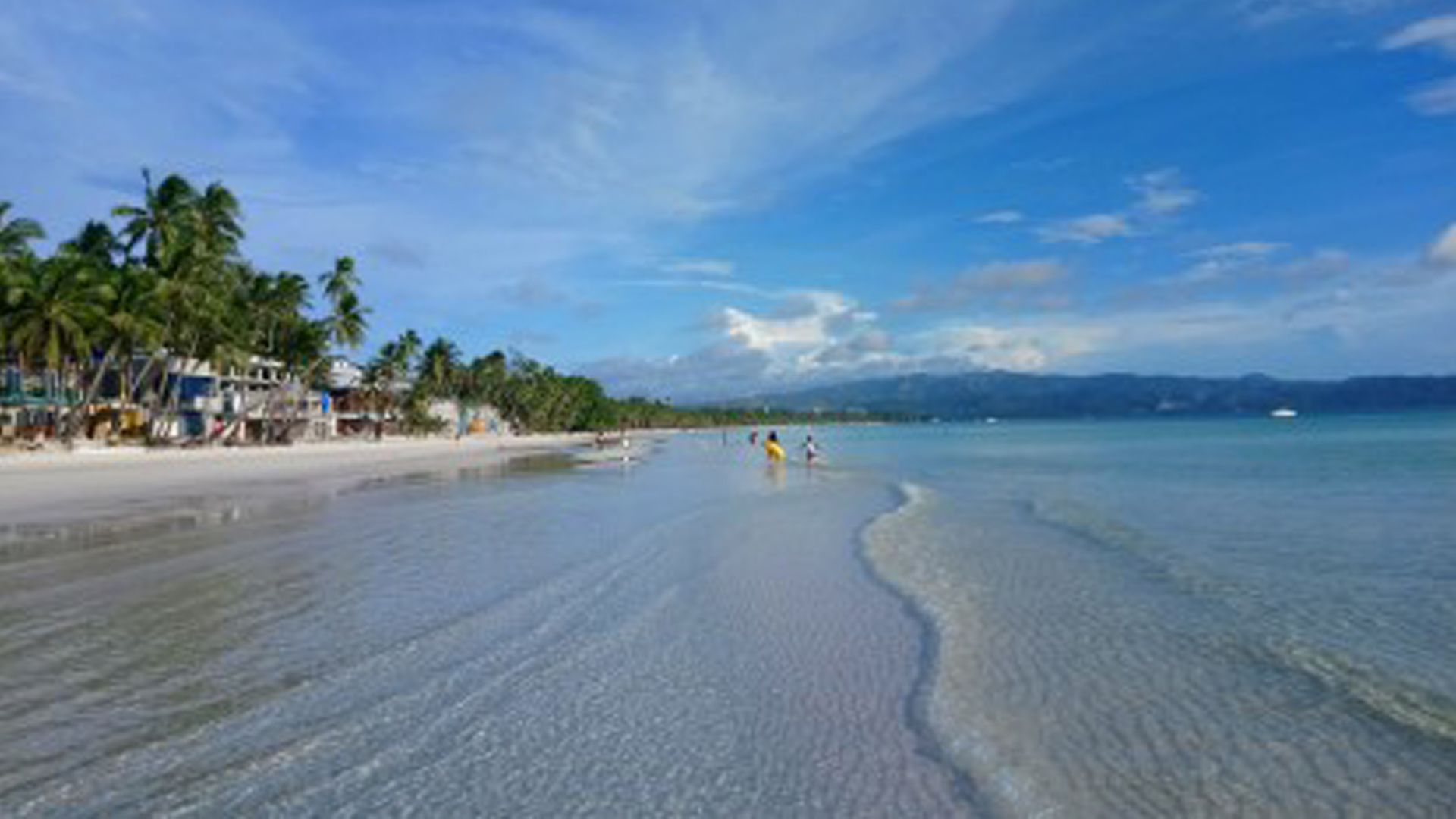As Boracay reopens to local tourists coming from Western Visayas on June 16, the Department of Environment and Natural Resources is closely monitoring the water quality on the island.
DENR Secretary Roy Cimatu expressed gladness about the present water quality of Boracay. The safe level is 100 mpn/100 ml for Class SB water that is suitable for swimming, skin diving and other recreational activities.
“Malinis na kung maka 100. Kung mas mababa yan sa 100, mas malinis, so ang average na nakukuha ko dito ay 1.0, from February. Pinakataas lang dito ay 20, so yan ang standard ngayon ng water quality dito sa Boracay. Wala na yung cesspool, gumanda na lalo pa na walang nag si-swimming (it is already clean at 100. If it is lower then that means it is much cleaner, so the average we have here is 1.0, from February. The highest is 20, so that is the standard water quality now in Boracay. It’s not a cesspool anymore and it is more beautiful now, especially that no one is swimming),” he said in a briefing Thursday.
Cimatu said last year, the average water quality they had was at 1.0 until December.
From January until June of this year, the highest average so far is at 7.1.
On the issue of drainage and connectivity of sewers in the island, DENR Director and General Manager of Boracay Inter-Agency Rehabilitation Management Group, Natividad Bernardino, said since day one of the island’s closure, they already required all commercial establishments to connect to a sewerage system or have their own sewerage treatment plant (STP).
She said on the side of the Department of Public Works and Highway (DPWH), the agency is already 70-percent complete while the Tourism Infrastructure and Enterprise Zone Authority (TIEZA) is at 60 percent, as she expressed hope that all major structure projects would be finished by the end of their one-year extended term.
Right now, they are also looking at the sewerage connection of households to the STP.
“Ang kailangan namin sa mga houses, kailangan lagyan ng mga clusterized STP para connected na rin sila but so far lahat ng commercial establishments hindi pwedeng mag operate kung hindi sila connected or kung wala silang sewage treatment (we need to place a clusterized STP for the houses so they are also connected, but so far, all commercial establishments which are not connected (to the STP) or do not have their own sewerage treatment are not allowed to operate),” she said.
TIEZA Regulatory Office Director Darren Fernandez said they intend to complete the sewerage connections for residential houses, but the problem is on the right of way where they plan to put the sewer line.
“For Boracay water, (for) residential only about 11 percent lang ang sewered (are sewered), (for) commercial, ang sewered ay 60, so ang total, 24 percent ang sewered, pero kung volume double sya, its about 48 percent ng volume ang nati-treat (so the total is 24 percent are sewered, but in terms of volume, about 48 percent are treated)”.
On Boracay forest lands, Cimatu said as of now, there are still many structures built on the areas.
He said owners of these structures were already given an ultimatum to take out their structures on the areas, but due of the pandemic, the implementation was postponed.
“They should really make their presence there legal by making an appeal para ma-legalize yung presence nila otherwise ma-demolish talaga yung kanilang building (to legalize their presence otherwise their building will be demolished),” Cimatu said. (PNA)







